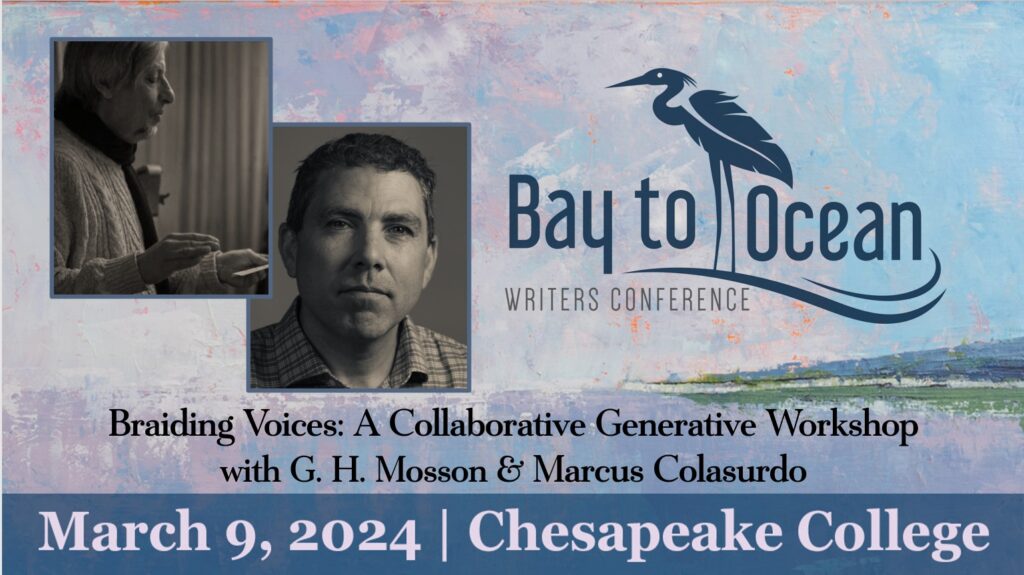The heat of summer has hit Maryland. Oppressive, it’s feels just right. I have noticed the grass has stopped aggressively growing, which it did all June. Together we are baking and making our way in a slower cadence. Of course, time for summer reading! I am reading these gems right now:
Roman Stories by Jhumpa Lahiri (Vintage 2024)
You Could Make This Place Beautiful by Maggie Smith (Simon & Schuster 2023)
Crossing the Tape (poems) by Michael Salcman (Spuyten Duyvil 2024)
The River Is the Reason (poems) by Meredith Davies Hadaway (Word Tech 2011)
Rumi’s Little Book of Life: The Garden of the Soul, the Heart, and the Spirit by Rumi (trans. Maryam Mafi & Melita Kolin) (Hampton Roads Publishing 2012)
I just finished Maggie Smith’s hybrid text memoir about her life during and just after divorce, combined with a bird’s eye view of her life as a working poet and concerned mother, her hopes as an adult, plus her ascent into national recognition, all jumbled together. Composed of vignettes of one to two pages, notes to self, vows and questions, and sparingly, the occasional poem, Smith’s shared self-exploration is a moving account.
Smith’s husband is a college playwright and adult lawyer, she reports, so the book explores what it means for them to live out different sort of dreams, including him being the breadwinner, maybe abandoning writing (though that is at most implied), and Smith becoming increasingly engaged with literary events and teaching gigs as the marriage frays. These days, Smith’s poetry career, and now prose too, has taken off. It provides the income that did not exist during the marriage, which is a poignant arc of the memoir evident in the events, though the point is not emphasized.
What is explored here? Love, betrayal, parenting in divorce, the writing life, how it all happens, what to make of it, how to feel about it. Smith’s collage notebook of a memoir has the atmosphere of both breezy open window and echoing water well.
It has occurred to me — with Tolstoy’s fictional memoir is on my bed stand (“Childhood Boyhood Youth”) and waiting for me to read into the middle section — whether Smith’s hybrid format can really equal heartfelt realism exemplified by Tolstoy in depth of detail, compared to entertainment and surprise. Maybe it does not have to. Smith’s book also is not a tell all. Rather, it’s insightful, self-reflective, searching, and at times, gregarious and fun.
I also am one story away from finishing Jhumpa Lahiri’s Roman Stories: ineffable and poignant tales from an esteemed writer who now lives in Italy. I remember her first two books, but have not kept up with her oeuvre. Lahiri can write about the mundane in meticulous yet effortless detail and with tremulous resonance.
If someone else told you one of her stories at a dinner party, you might scoot off bored. In her hands, you travel to Italy, enter other people’s lives, hear the bird outside or see the watermarks stain on a used glass, while diving into universal humanity, to arrive back in your chair. Wonderful.
While less dramatic in Roman Stories than the great Irish short story teller William Trevor, her elegant simplicity like Trevor gets at the heart of people’s lives, each unique and intricate, though none of them here would, on the street passing by, catch your eye. If a future society asked, What was it like for an average individual including non-Italian immigrants to live in colossal Rome in 2010-2024?, these stories would be a historian’s treasure trove.
Michael Salcman and Meredith Davies Hadaway are Maryland poets that write delicate work. Salcman’s Crossing the Tape takes place in his ’70s, and does so with range, grace and his usual cosmopolitan insight. Divided into five sections, there are ekphrastic poems, poems on war and social violence, plus poems on intimacy, everyday living, and aging. Recommended. Salcman is moody, wise, intelligent, erudite, and caring; he deserves a national audience.
Hadaway’s 2011 The River Is the Reason is themed around the ways of rivers, which is fun way to craft a book for the reader. On the Eastern Shore of Maryland, Hadaway writes sparingly and exacting as might early William Carlos Williams if alive today. However rather than crowded and urban New Jersey, the atmosphere here involves the open space, rivers and breezes, and the broad sky of Maryland’s eastern shoreline. I had the pleasure to see her read recently, and she identifies herself as an environmental or ecological poet, observing with care more than loudly political. Recommended.
Click on their names to find out more about Salcman and Hadaway.
Maryam Mafi & Melita Kolin’s translation of timeless Rumi poems hits the spot. It is my second time dipping into this collection. Stunning stuff.
Cheers,
G. H. Mosson
Maryland, USA
www.ghmosson.com

